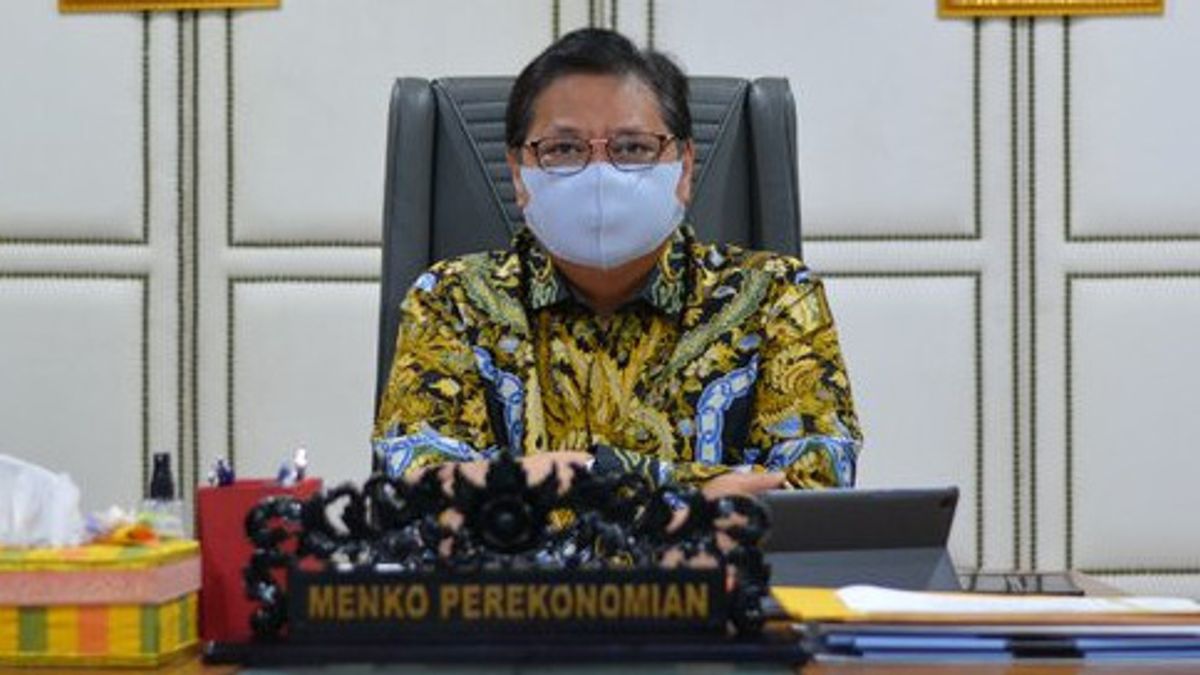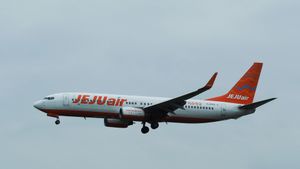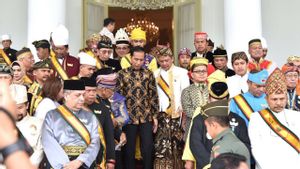JAKARTA - The Coordinating Minister for the Economy Airlangga Hartarto said that currently Indonesia has entered a period of economic recovery. This recovery momentum is expected to continue until 2021, even though Indonesia still has to face the COVID-19 pandemic situation.
"The recovery phase also occurred in Indonesia where the economy, which contracted in the second quarter, began to show a positive signal trend. The implementation of the economic program and the new normal led to improvements in a number of economic indicators," he said in a virtual discussion, Tuesday, October 27.
Airlangga said that the economic recovery was marked by the manufacturing sector or the manufacturing sector which was the largest contributor to gross domestic product (GDP) showing improvement in the third quarter of 2020.
"It is predicted that it will continue to increase in the fourth quarter of 2020 in which the Financial Market Infrastructures (FMI) of Bank Indonesia reaches the level of 47 percent or nearly 50 percent. This means that the manufacturing sector has started to show growth," he said.
In addition, said Airlangga, industrial activities also showed improvement. This is reflected in the increase in exports of raw materials and capital goods in September. Indonesia's trade balance experienced a surplus of US $ 8.03 billion in the third quarter. According to him, this also supports economic resilience in the external sector.
"The economic recovery is not only happening in the real sector but also in the capital market. The performance of the JCI and the rupiah exchange rate. Each JCI has passed above 5,100 and the rupiah has strengthened to 14,648 as of 16 October," he explained.
The JCI performance improvement, said Airlangga, was driven by the sector stock index. Where the basic industry experienced the largest index recovery since the sharp decline in March last.
"The momentum for economic recovery needs to be maintained and enhanced in this regard the government has implemented a gas brake gas strategy where we maintain a balance in handling the COVID-19 pandemic and economic recovery," he said.
Airlangga said the government had also provided various supports from the business world in the national economic recovery program (PEN). One of them, in the form of fiscal incentives. The aim is to increase the productivity of the business world so as to accelerate the national economic recovery.
Not only that, said Airlangga, the government also provided support to Himbara banks, BPD and Islamic banks to provide financing to the business world. The provision of credit is also accompanied by a working capital credit guarantee program for MSMEs and labor-intensive cooperatives.
"This program is expected to support business expansion during the COVID-19 pandemic. The government also provides convenience for business actors affected by the COVID-19 pandemic to carry out credit restructuring or financing of IDR 904 trillion. Out of 7.5 million debtors, the credit restructuring process has been carried out by banks. , "he said.
Furthermore, he said, meanwhile, finance companies had restructured 4.73 million contracts.
The former Minister of Industry said that the presence of the Omnibus Law on Job Creation also encourages the creation of quality jobs and the ease of opening new businesses for MSMEs.
"It is hoped that it will become a lifeline for companies to restore the corporate sector in the post-COVID-19 pandemic," he said.
The English, Chinese, Japanese, Arabic, and French versions are automatically generated by the AI. So there may still be inaccuracies in translating, please always see Indonesian as our main language. (system supported by DigitalSiber.id)













